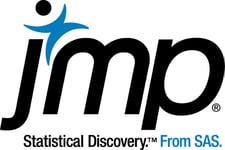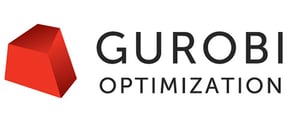Learn about analytics, predictive modeling, and optimization from top trainers and business solution providers!
Access free online learning from the world’s largest association of operations research, analytics, and data science professionals.
Learn from leaders of innovation how optimization, predictive analytics, modeling, machine learning, and other critical areas impact success.
INFORMS Sponsored Webinar Series provides insight from top educators and cutting-edge businesses that are delivering real-world applications, and research-based solutions.
Don’t miss these free webinars and the opportunity to build your knowledge.
- Learn new skills
- Find solutions to problems
- Grow your career
Register below for each individual webinar and check back for upcoming webinars and recordings.

How Optimization Generates Millions: Cases from Energy, Transportation, Supply Chain, and Finance
Optimization is more accessible than ever, driving revenue and profitability across industries. This presentation explores how advances in modeling, integration, and AI make optimization a core analytics tool. We showcase AMPL’s MP framework for intuitive problem formulation and its seamless integration with Python via amplpy for data handling and visualization. Through real-world cases in energy, transportation, supply chain, and finance, we demonstrate how generative AI accelerates development, enabling rapid deployment of powerful optimization solutions.
Speakers
Filipe Brandão and Robert Fourer

Leveraging AMPL, Python, and AI to Democratize Creation of Decision Optimization Applications
Optimization is critical to the successful use of analytics in enterprises of all kinds. In this presentation, you'll learn how you can create and deploy successful decision optimization applications, rapidly and reliably -- by connecting AMPL's powerful and intuitive modeling tools to Python's extensive development ecosystem, and to the impressive code-writing abilities of AI. AMPL also reduces the modeling barrier substantially, through automated reformulations that enable a consistent interface to all of the most widely used solver packages. By breaking down a complex process into manageable steps, our approach is accessible to domain experts and software developers of varied skill levels and backgrounds.
Speakers
Filipe Brandão and Bob Fourer

Teaching, Learning, and Applying Optimization: AMPL’s Intuitive Modeling Meets the Python Ecosystem
Optimization is part of any educational program in Operations Research or Analytics, but the curriculum must steadily evolve to remain relevant. Following an introductory example, this presentation takes you on a tour through new developments in the AMPL modeling language and system that have been changing the ways that large-scale optimization is taught and learned.
Speakers
Filipe Brandão and Robert Fourer
Tuesday, November 8, 2022 | 12noon-1pm EDT
Kennesaw State University
University partnerships can be highly productive and beneficial. However, they are different from typical corporate partnerships in terms of scope, goals, and legal structure. This talk will discuss some of the do's and don'ts around setting up your own university partnerships and outline how to get the most from them.
Webinar attendees will learn:
What is different about a university partnership
How to design a strong university partnership
Do's and don'ts that lead to success
Speakers
Bill Franks and Jennifer Priestley

A Low Code/No Code Interactive Environment for Data Science
Learn how easy it can be for your students to mine text data to find features, and extract themes and sentiment.
JMP Statistical Software is designed so that novice to advanced users can interactively explore data and perform a wide range of analyses without the need for coding. This makes it a great choice to use in the classroom as the easy-to-use GUI allows students to quickly learn concepts and interpret results, not getting bogged down in coding.
Participants of this webinar will learn and discuss:
- The importance of text analysis being incorporated into introductory statistics and analytics courses
- Examples of incorporating text analysis into analytics courses
- How easy it is to perform these analyses using JMP Software
Speaker
Kevin Potcner, JMP Academic Team
Decision Making for Leaders, an Analytic Network Process Approach
Creative Decisions Foundation
Interested in how leaders structure decision-making problems? Join Chief Research Director Elena Rokou at Creative Decisions Foundation to learn about combining simulation, decision making, and optimization techniques to achieve better solutions.
Participants will learn and discuss how to:
- Structure decision-making problems, especially resource allocation problems using the analytic hierarchy process
- Combine simulation, decision making, and optimization techniques to get a well-rounded solution
- Evaluate the robustness of the solution
Speaker
Dr. Elena Rokou, Chief Research Director
Creative Decisions Foundation
Don’t Speculate. Simulate. Analyze, Improve, and Optimize Operations.
This webinar introduces the basic concepts of simulation modeling and analysis and its relationship to other technologies, such as optimization, artificial intelligence, etc. The webinar will also demonstrate the value of simulation as a problem-solving tool and its applicability across a wide variety of industries and problem domains. These topics are all illustrated using FlexSim simulation software — a powerful, modern modeling and analysis environment.
Webinar attendees will learn:
1. What simulation modeling and analysis involve and their relationships to other technologies such as optimization, artificial intelligence, etc.
2. Why simulation in general, and FlexSim in particular, is so valuable for problem-solving and performance improvement.
3. Where simulation is applied in terms of industries and problem domains.
Speaker
Allen Greenwood, FlexSim Software Products, Inc
Allen G. Greenwood is professor emeritus in the Department of Industrial and Systems Engineering at Mississippi State University and simulation education specialist at FlexSim Software Products, Inc. He holds a Ph.D. in management science, with minors in statistics and industrial engineering, from Virginia Tech. He received his B.S.I.E. from North Carolina State University, M.S.I.E. from the University of Tennessee, and is a registered professional engineer (retired). His teaching and research interests and expertise include: simulation modeling, analysis, and optimization; project management; and, process design in production and logistics systems. He has extensive industry project experience in a wide variety of domains; his work has been funded by large and small enterprises (e.g., General Electric Aviation, Northrop Grumman, Nissan North America), government agencies (e.g., NASA, Office of Naval Research), and research centers (e.g., Air Force Research Laboratory, Center for Advanced Vehicular Systems). He is co-author of the textbook Applied Simulation Modeling and Analysis Using FlexSim.
Solving Bilinear Programming Problems
Join Gurobi Optimization for an in-depth review of three Bilinear Programming Problems that are common across many industries. These problems include: Quadratic Programming Problems, Quadratic Assignment Problems, and Mixed Integer Quadratically Constrained Programming Problems. The presentation will provide practical examples for solving problems to maximize revenue and improve efficiencies.
Participants of this webinar will learn and discuss:
- Implementation of the Bilinear Programming Problems formulation using the Gurobi Python API
- Traditional linearization approaches to tackle Quadratic Assignment Problems and comparison with direct formulation without linearization
- A tight formulation of the Pooling Problem
Speaker
Pano Santos
Dr. Santos is a Sr. Technical Content Manager at Gurobi Optimization. Santos retired from Hewlett-Packard Enterprise as Distinguished Technologist. During his 23 years at HP Labs, he developed and implemented several decision support tools of mathematical programming applications for workforce planning in the services industry, supply chain planning, CRM, transportation and logistics, and operating room scheduling. Santos has a Bachelor’s degree in Applied Mathematics from the University of Mexico (UNAM), and Masters and PhD degrees in Operations Research from the University of Waterloo in Canada.
Workforce Optimization: A Use Case for Quantum Inspired Computing Power
There is a near-universal need for organizations across industry sectors to reimagine workforce and resource optimization, due to the rapidly evolving dynamics that are redefining today’s work environment. With teleworking trends on the rise, social distancing mandates in place and greater focus on people-centric initiatives, organizations find themselves at a tipping point. The balance between output and outcome, efficiency and effectiveness, productivity and satisfaction, is growing narrower by the day.
Join this webinar to learn how:
- An innovative quantum inspired architecture capable of breaking through the limits of conventional computers is helping to achieve results and address key business challenges in the workforce optimization space
- The key characteristics of quantum inspired computing, enable swift evaluation of massive data combinations to find the optimal solution in seconds translating into profitability gains, cost savings and employee engagement
Speakers
Nicholas Lee, Sr. Director, AI and Quantum, Fujitsu Intelligence Technology
Georges Baydoun, Operations Research Specialist, Fujitsu Intelligence Technology
How Python Modelers Can Increase ROI and Business User Engagement with FICO Xpress Insight
- How to deploy a Python model in FICO Xpress Insight
- Customization options for Python models
- Practical demonstrations of several common use cases
For our latest free webinar, join speakers Oliver Bastert, Johannes Mueller, and Vladimir Roitch as they introduce you to an enterprise-ready solution that integrates with Python to convert your analytics into a useable, interactable form: FICO Xpress Insight.
Python is one of the world's most popular languages, yet developers often fail to deliver their analytics solutions to end-users. If you work with Python, don’t miss this chance to learn how to overcome all of the "last-mile” obstacles and actually generate applications that allow for what-if analyses, reporting, user management, load balancing, drag-and-drop UI creation capabilities, and more. We’ll show you:
- How to deploy a Python model in FICO Xpress Insight in 5 minutes
- Customization options for Python models
- Practical demonstrations of several common use cases
Speakers
Oliver Bastert, Johannes Mueller, and Vladimir Roitch
Adding Optimization to Your Applications: AMPL's Model-Based Approach to Fast Development and Reliable Deployment
In this webinar, you’ll learn:
- An understanding of the optimization modeling lifecycle and the components of the modern optimization toolchain.
- An appreciation for the benefits of model-based optimization, including the advantages of modeling and modeling languages over programming and programming languages for optimization.
- Case studies of successful model-based optimization applications across a variety of business types.
Speaker
Robert Fourer
Northwestern University
Website with CV
Robert Fourer is co-founder and President of AMPL Optimization Inc. and Professor Emeritus of Industrial Engineering and Management Sciences at Northwestern University. In collaboration with colleagues in Computing Science Research at Bell Laboratories, he initiated the design and development of AMPL, a widely used optimization language and system, and wrote a popular book on optimization modeling in AMPL. Additionally, he has been a key contributor to the NEOS Server project to make optimization software available over the Internet, and has supported development of open-source software for operations research through his service on the board of the COIN-OR Foundation. He shared the Beale-Orchard-Hays Prize for NEOS, and the INFORMS Impact Prize in recognition of the influence of algebraic modeling languages for optimization.
The Princeton 20 for AI Projects: A Framework to Manage Project Risks and Successfully Deploy Solutions
Princeton Consultants has had the privilege of working with innovators across a wide range of industries to improve their decision-making using advanced analytics. Over 40 years, this work has worn many labels. What has historically been called expert systems, decision support, and operations research is today often simply called Artificial Intelligence (AI). During this time, the core techniques have vastly expanded – from bases in statistics, simulation, and mathematical optimization, to include machine learning and new classes of hybrid algorithms. These advances have been multiplied by the exponential improvements in supporting hardware.
We have found consistent and repeatable factors that govern whether a given analytics project will make it into successful production. These factors also apply to the latest AI projects. We have codified these learnings into the “Princeton 20” – a list of 10 environmental and 10 technical risk factors that will help you anticipate issues and increase the likelihood of a successful transition from promising research to production deployment and wide usage.
Join Princeton Consultants Founder and CEO Steve Sashihara for a webinar that is ideal for practitioners and team leaders who deploy solutions into production. In this webinar, you’ll learn:
- 10 business risk factors and 10 technical risk factors to monitor in AI projects.
- How to score project risk factors.
- Tips and techniques to overcome obstacles and deploy solutions.
Speaker
Steve Sashihara, Founder and CEO
Princeton Consultants
The Predictive Modeling Workflow
October 8, 2020
3pm EDT
The webinar will move through the full life cycle of a predictive analytics project. Steps shown includes data cleaning and preparation, initial exploration and analyses, model fitting, evaluating and comparing model performance, final model selection, and deployment into a production environment. Modeling techniques shown will include Multiple Linear Regression, Regression trees, Neural Nets, and K-Nearest Neighbors.
In this webinar you’ll learn:
- Best practices in how to approach a predictive modeling effort.
- Some of the common mistakes analyst make in a predictive modeling effort.
- Why using a point-and-click interactive software environment can be more efficient.
Speaker
Kevin Potcner
Sponsor your own INFORMS webinar!
Are you interested in sponsoring an INFORMS webinar? Contact us to find out how you can showcase your application or business solutions to INFORMS influential members.
Learn about sponsoring an INFORMS webinar
just reach out to Bill Griffin, at bgriffin@informs.org.











